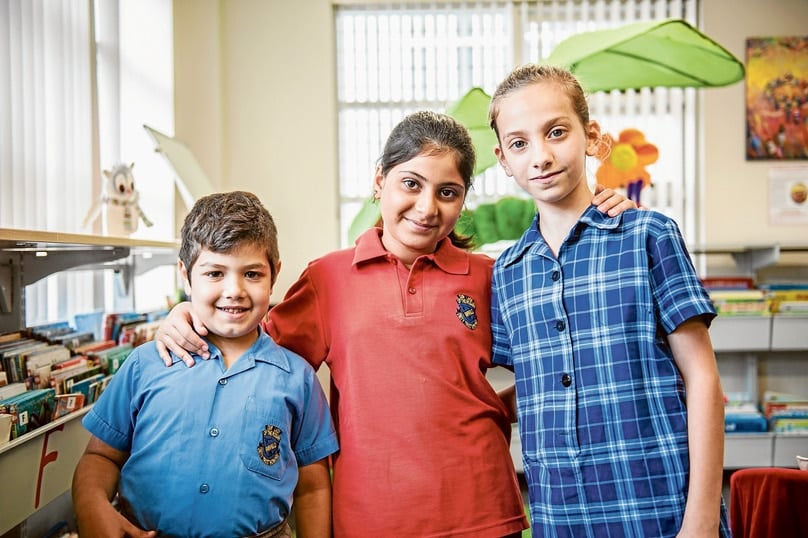
Over 400 children from war-torn Syria and Iraq have been taken in by Catholic schools around Sydney, and that number will continue to rise over the coming months.
These incredibly vulnerable children have fled with their families from the terror of ISIS and civil war in their homelands, and have been welcomed into Sydney’s Catholic schools as they seek a new life full of hope for the future.
Mary MacKillop College in Wakeley has taken in 25 girls from Syria and Iraq since the beginning of the current school term. Principal Narelle Archer says the school is set to take in more as the stream of refugees continues to flow into Sydney over the next few months. “The girls are very resilient” and “very good at integrating” with the other students, she said, but they face several challenges as they have experienced interrupted schooling and have no English skills.
The school is not yet aware of the specific traumas that each of the girls has endured. “You have to dig a little bit,” Ms Archer said, but she is aware that some of the girls’ relatives had been killed by ISIS.
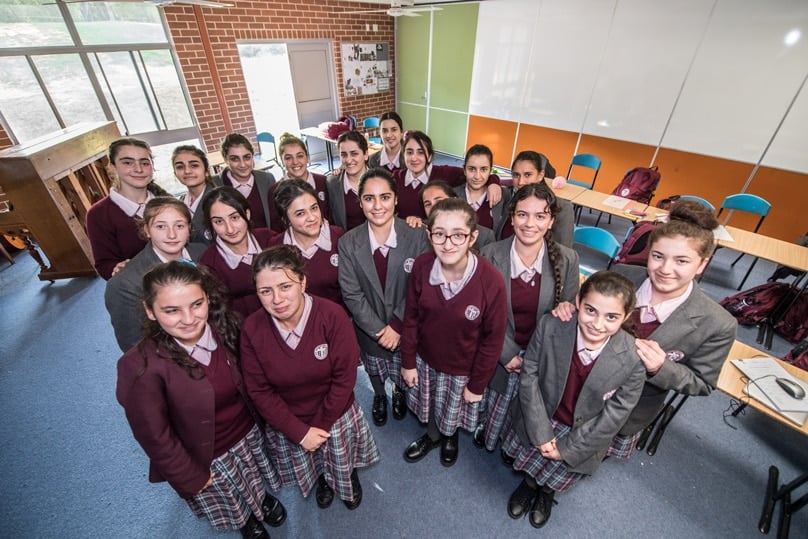
Most of the refugees are Christian – either Chaldean Catholic or Syriac Catholics – and the parents want their children to attend Catholic schools. However, Ms Archer referred to a “funding glitch” preventing Catholic schools from accessing support funding.
“A lot of the Catholic schools don’t have room for these students but Sydney Catholic Schools are trying to do as much as they can,” she said.
Sr Margaret Barclay, who is a Presentation Sister and a Social Worker, has been supporting refugee students and their families at Our Lady of the Rosary Primary school in Fairfield, which has taken 34 students from Syria and Iraq.
The biggest difficulties for the refugee children, according to Sr Barclay, is the language barrier and getting used to a new system where they are in the classroom all day listening to classes in English. It is “exhausting” for them, she said.
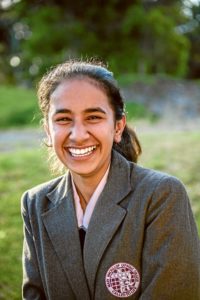
“The parents are focused on the needs of their children,” Sr Barclay said, and they “express relief that their children are safe and cared for.” They have come from backgrounds “involving war and great anxiety and they need psycho-socio support,” she said. “They want to feel safe and secure.”
“The schools are doing a fabulous job and the teachers are so dedicated.” She pointed out that many teachers have taken on the extra work to assist the new students who require particular support and can exhibit “challenging behaviours.”
The greatest support that the wider community can offer these people, Sr Barclay said, is to “understand what these refugees have been through and to welcome them to our land.”
Patrician Brothers College, also in Fairfield, has so far taken 12 boys, all from Iraq and mostly from the city of Mosul, which was seized by ISIS in 2014. Some of the boys are over 18 years of age as they missed out on schooling in recent years due to the situation in Iraq.
“Our mission is outreach to the most needy,” Principal Peter Wade said. The school has totally refurbished several classrooms for the new students, deliberately located at the centre of the school campus, Mr Wade said, so that the new students don’t feel they are on the periphery of the school community but rather at the heart – embraced, supported and included.
The school has a Catholic Intensive English Centre with expert English teachers and bilingual teachers, to get the boys up-to-speed with the English language before they transition into the mainstream school curriculum. The school has also supplied the boys with uniforms and computers and they have already been transitioned into sport and other activities.
Mr Wade said the other students have been “brilliant” in welcoming the new boys. He said the refugee students come from “the most beautiful families” and are highly “aspirational”.
“They are seeking a Catholic education, quality Catholic schools where their faith is supported. We provide that in spades.”
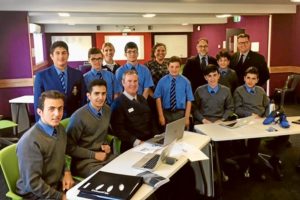
The cornerstone of the Patrician Brothers charism is hospitality and welcome, he said. “What is our Gospel message? Outreach to the poor and marginalised. They have been deprived of education and uprooted. We need to embrace them.”
Receiving these refugee students is also of great benefit to the school community, he said.
“The financial support is far out-weighed by the smiling faces on those boys when you speak to them.”
He referred to one of the Iraqi students in Year 9 who was so keen to start playing soccer that he kept his soccer boots on his desk during classes. The teachers noticed that every-so-often he would touch the boots, rearrange them or stroke them. Mr Wade says he instructed staff to involve the boy in soccer matches, even if he had to start off as a water carrier. He now plays for the school on a regular basis. “He was embraced by the coaches and the students,” Mr Wade said.
He said there is a need for education and understanding in the wider community “of the nature of the crisis in Iraq and how and why they are seeking refuge in Australia.”
The more direct form of support is also appreciated. “We never turn down donations,” Mr Wade added.
Dr Dan White, Executive Director of Sydney Catholic Schools, is “very proud” that Catholic schools in Sydney have taken over 400 refugee students from Syria and Iraq. He said it had involved “a massive joint effort across the system” to accommodate the new students at the three Catholic Intensive English Centres at Fairfield, Wakeley and Lakemba.
Staff from a broad range of schools have given generously of their time, he said, with some giving up holidays and many driving long distances, just to be present so the centres would be ready for the influx of new students.
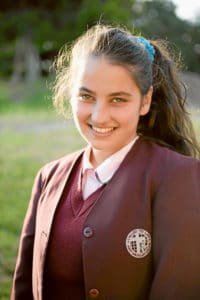
It has been “humbling to see the generosity and compassionate response from people,” Dr White said.
“Both teachers and students have embraced the refugee students with compassion and with the expectation that these kids can achieve something wonderful. It is testimony to the Catholic community.”
One major challenge for the refugee families, he said, is that the qualifications of the parents – many of whom are “extremely well educated” – are not recognised in Australia, making it difficult for them to find work. He said that culturally this can be a “source of great shame,” especially for the fathers, to be unable to support their families.
Some of the refugee students had family members “killed before their eyes,” Dr White said. They have suffered continued oppression in their homelands, with no freedom of religion or freedom of movement. They also endured the anxiety of the journey after fleeing the persecution and conflict, staying temporarily in other countries and eventually arriving in Australia.
“Their faith sustained them,” Dr White said. “So for them to be in a faith-filled school environment is fundamental. They belong to us.”
“The young people are so committed to getting an education, and we provide a place of real hope. They see us as a place where their dreams can come true. The kids are so appreciative.”
Dr White said the Catholic school system is expecting to receive another couple of hundred students from Syria and Iraq over the next few months, however, he said it is “hard to predict and the unpredictability makes it difficult to put funding in place.”
He hopes that the “hubs” for refugees in Fairfield and Wakeley will become places of great support with advisors and mentors helping new arrivals acquire skills and resources for their new lives in Australia.
The generous response so far from the Catholic school community has been “extraordinary but not surprising,” he said.
